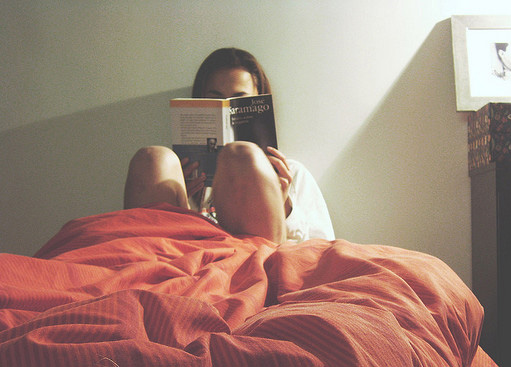Autism and getting a good night’s sleep
Sleep is an essential function that allows your body and mind to recharge and work through the day’s events. Not getting enough sleep can affect your mental health and behaviour.
Here are a few things you can try to help get a good night’s sleep:


 Image Credit
Image Credit Creating a bedtime routine can help signal to your body that it is time to sleep.
A few things you can add to your routine are:
- having a shower
- brushing your teeth
- putting your pyjamas on
- reading a book
Try to keep the same sleep and wake times every day, and start your routine at least one hour before bedtime.


 Image Credit
Image Credit Sensory overload can cause your brain to become overstimulated; this can make you feel more awake.
Try turning down the lights in the room and playing some gentle music.
If you prefer the quiet, put some headphones on to help you relax and unwind ready for bedtime.


 Image Credit
Image Credit The blue light on your screen makes your brain think it is daytime and wakes it up when it should be preparing to power down.
Try reducing your screen time at least one hour before bedtime to help your body prepare for sleep.


 Image Credit
Image Credit Food and drinks containing caffeine, including chocolate, are stimulants that work to wake up the body and stop you from falling asleep.
Avoid eating or drinking caffeinated products at least 3 – 4 hours before bedtime.


 Image Credit
Image Credit Research has shown that a balanced diet helps the body run more efficiently and promotes better sleep.
Add regular eating and drinking times to your daily routine to help keep you on track.


 Image Credit
Image Credit Exercise triggers the release of chemicals in your body that help with regulating your mood, sleep and digestion.
Adding regular exercise to your daily routine, like walking, running or swimming, can help with a good night’s sleep.


 Image Credit
Image Credit Practising meditation can help relieve stress and anxiety, and it can also help to relax the mind and body.
Try adding a meditation session to your daily routine to help calm and relax you.


 Image Credit
Image Credit When you have a lot on your mind it can be difficult to relax and unwind.
Try writing or drawing your thoughts down in a journal at the end of each day.
If you are struggling or worried about your sleep patterns, speak to your GP to get some help and advice.
If you are having thoughts about harming yourself or suicide it is important to speak to someone, contact one of the services below and get some help:
- SHOUT– the UK’s first 24/7 crisis text service, provides free, confidential, 24/7 text message support in the UK for anyone who is struggling to cope. Text SHOUT to 85258. This service is free on all major mobile networks, for anyone in crisis, anytime.
- Childline– for children and young people under 19. Call 0800 1111 – the number will not show up on your phone bill
- Tellmi
how to get help
If you have any more questions on this area or would like to speak to somebody about this topic, have a look at the links or search for your local services in the blue box below. Alternatively, you can always contact your school nurse.

Find help in your local area
Find help in your local area
Find out what services are available to you in your area. Remember your school nurse is always there to give you confidential help and support.



